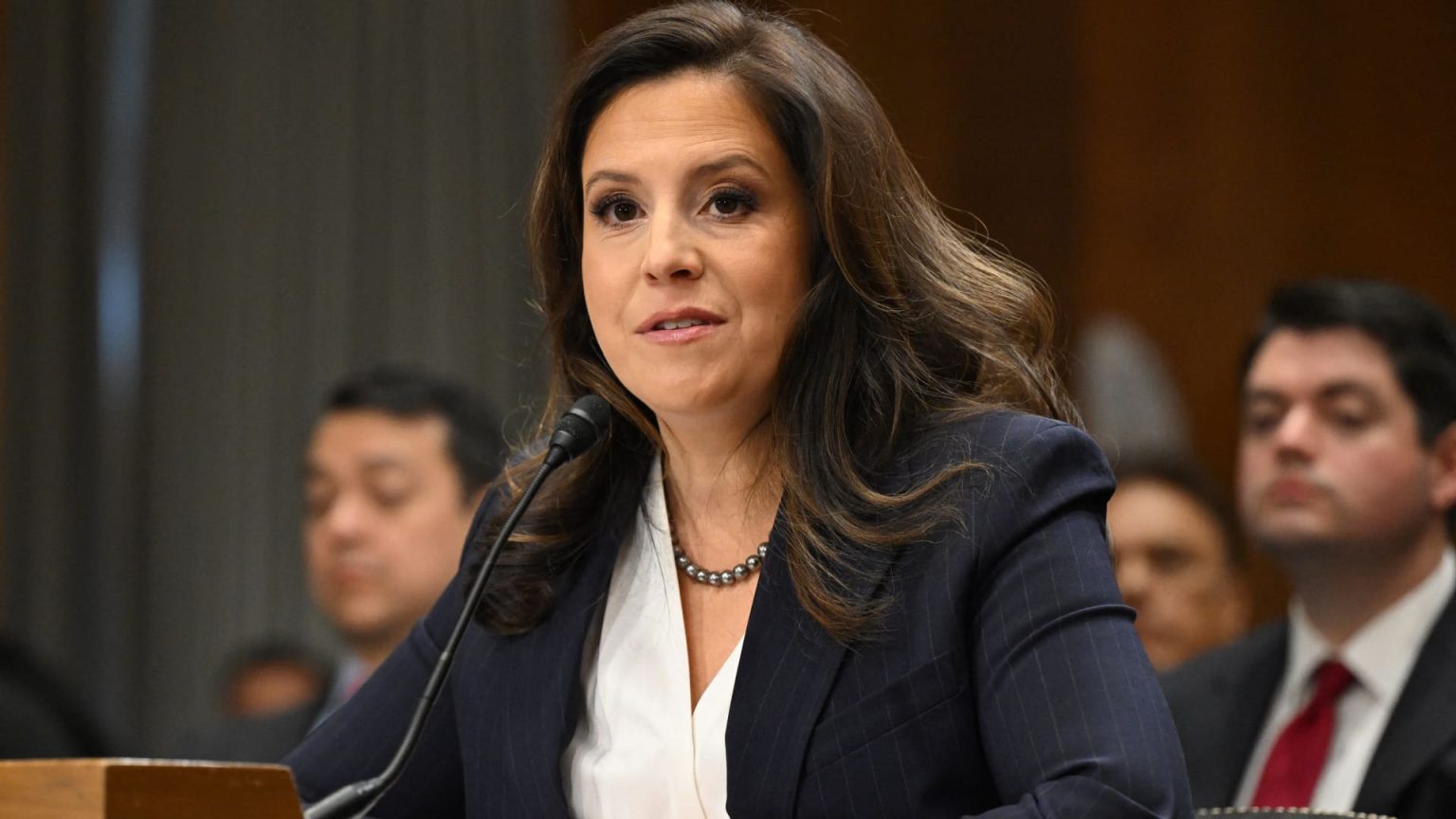In a significant political development, President Donald Trump has officially withdrawn his nomination of Representative Elise Stefanik as U.S. Ambassador to the United Nations. The move comes amidst concerns about maintaining the Republican majority in the House of Representatives, with Trump emphasizing the importance of having every Republican seat filled. This decision highlights the strategic considerations at play for the administration as it navigates key legislative goals and seeks to consolidate party unity.
| Article Subheadings |
|---|
| 1) Withdrawal of Nomination |
| 2) Importance of Stefanik’s Role |
| 3) Legislative Implications |
| 4) Trump’s Stance on Party Unity |
| 5) Future of U.N. Nomination |
Withdrawal of Nomination
On January 21, 2025, President Trump withdrew his nomination of Representative Elise Stefanik to serve as the U.S. Ambassador to the United Nations. In his statement, Trump indicated that this decision was influenced by the precarious nature of the Republican majority in the House of Representatives. He highlighted the necessity of maintaining complete Republican representation to further his administration’s goals effectively. The ambassadorship nomination, which had been pending for nearly two months, had raised concerns that Stefanik’s departure from the House would weaken the GOP’s legislative leverage.
Importance of Stefanik’s Role
Since the onset of Trump’s presidency in January, Elise Stefanik has emerged as a critical player within the Republican caucus. Her role extends beyond typical congressional duties; Stefanik has been instrumental in the passage of essential legislation that aligns with the Trump administration’s objectives. With a narrow majority in the House, each Republican vote carries substantial weight, making her presence vital in the current political climate. Trump expressed in his social media post, “Elise Stefanik has been a vital part of our efforts from the very beginning,” underscoring her critical position within the party.
Legislative Implications
The decision to retract Stefanik’s nomination reflects a broader strategy, one that prioritizes legislative stability over diplomatic appointments. Trump’s administration has relied heavily on the existing congressional composition to push forward significant policies, including tax cuts, job creation, and national security measures. The ambassadorship vacancy may now be filled by an alternative candidate, but the implications of Stefanik’s potential exit extended into legislative territory that would affect the overall agenda of the administration. Her leadership in the House allowed for a synergistic effort against opposition, essential for advancing Trump’s policy goals.
Trump’s Stance on Party Unity
In his withdrawal announcement, Trump prioritized party unity above individual appointments. He conveyed his commitment to keeping Republican seats secure, stating, “With a very tight Majority, I don’t want to take a chance on anyone else running for Elise’s seat.” This statement emphasizes the importance the Trump administration places on the cohesiveness of its party members right now, during a politically charged environment. Trump’s vision appears to revolve around a singular mission: the consolidation of power in Congress to achieve his policy initiatives. By retaining stalwarts like Stefanik, the administration hopes to fortify its legislative stance.
Future of U.N. Nomination
As the administration prepares to move forward without Elise Stefanik in the ambassador role, many are left to speculate on who may be lined up as the next candidate for the United Nations. Trump’s comments hinted at the possibility of appointing another individual who could effectively serve the U.S. in this critical diplomatic role, stating, “There are others that can do a good job at the United Nations.” While no specific names have surfaced, this transition opens up new avenues for potential candidates who align with Trump’s “America First” agenda and reflect his vision on international platforms.
| No. | Key Points |
|---|---|
| 1 | Trump withdrew the nomination of Elise Stefanik for U.N. ambassador due to concerns over maintaining Republican majority in Congress. |
| 2 | Stefanik’s role has been critical in passing important legislation during Trump’s presidency. |
| 3 | The administration emphasizes legislative performance over diplomatic roles amid a narrow majority. |
| 4 | Trump stresses the necessity of party unity and stability for achieving his administration’s goals. |
| 5 | Future U.N. nominee remains uncertain, but discussions hint at alternative candidates. |
Summary
The withdrawal of Elise Stefanik‘s nomination as U.S. Ambassador to the United Nations highlights the critical balance of power within the Republican Party. Trump’s decision emphasizes the significance of maintaining a unified front in Congress, particularly in light of a narrow legislative majority. Moving forward, this strategic choice reflects the administration’s focus on critical domestic priorities, underscoring the ongoing complexities of political maneuvering in an evolving landscape.
Frequently Asked Questions
Question: Why was Elise Stefanik’s nomination withdrawn?
President Trump withdrew Elise Stefanik‘s nomination due to concerns over the Republican majority in the House of Representatives, which he felt was critical for advancing his legislative agenda.
Question: What was Stefanik’s role in Congress before the withdrawal?
Before the withdrawal, Elise Stefanik was a key member of the Republican caucus, helping to pass essential legislation that aligned with the Trump administration’s objectives.
Question: What are the implications of maintaining a Republican majority?
Maintaining a Republican majority in Congress allows for greater legislative control and support for the administration’s agenda, preventing potential disruptions to proposed measures and policies.


